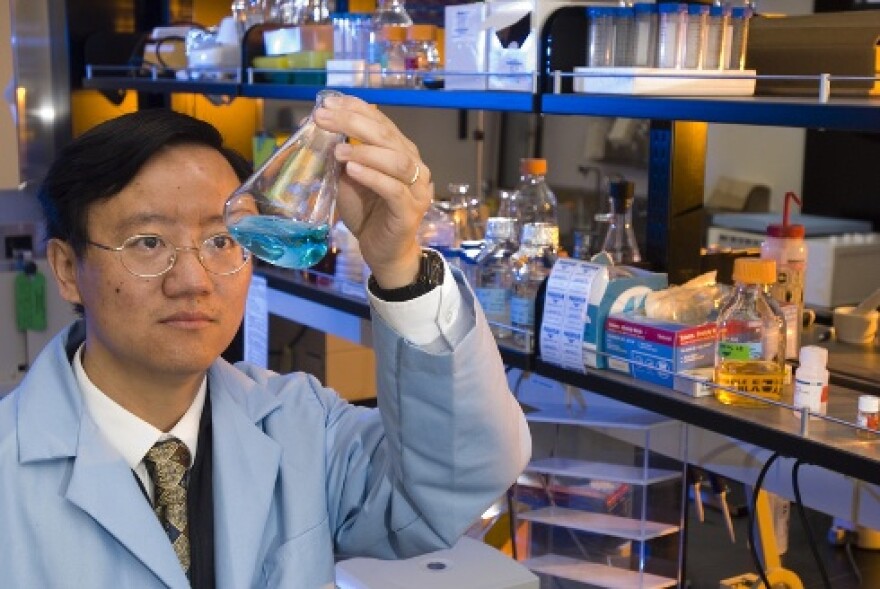The quest to transition to a hydrogen economy, where cars run on nearly emission- free fuel, faces many roadblocks. But a discovery by a team at Virginia Tech may help pave the way for cleaner burning vehicles.
Typically, hydrogen fuel for cars is made from natural gas. But Virginia Tech researchers have come up with a new way to make hydrogen from bio-mass, readily available plant leftovers such as corn husks or saw dust, with no need for fossil fuel in the process.
Joe Rollin, a former doctoral student in Biological Systems Engineering, worked on the project.
“It enables the production of smaller scale, hydrogen facilities which can enable the wide spread use of hydrogen fuel cell vehicles and the displacement of fossil fuels for transportation.”
Rollin says the new process uses a pathway of purified enzymes to break down sugars in the bio-mass instead of a microbe to covert it into hydrogen; a key change that makes the process faster and cheaper. And because sugar from left over plant material is available everywhere, it could literally be made at or near fueling stations where it’s sold, a paradigm shift toward a greener economy says Professor Percival Zhang, a Biological Systems Engineer who is leading the project.
“This is so important because we know in the future we will have a hydrogen economy so we can increase energy efficiency, decrease pollutants and rely on the renewable energy.”
The team’s new findings on producing hydrogen fuel from biomass, is published today in the Proceedings of the National Academy of Sciences.
.



